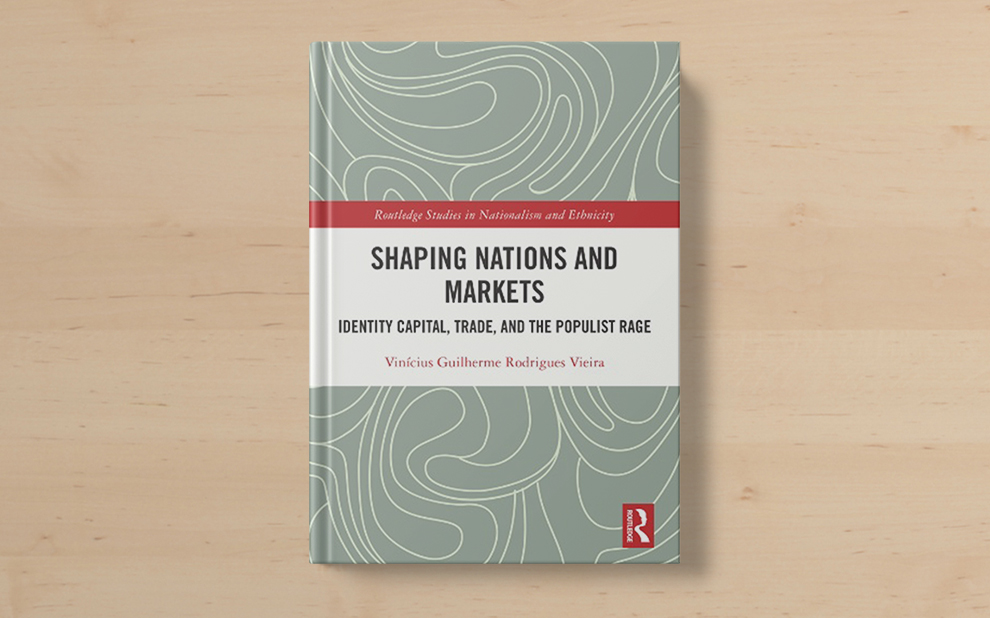Foreign trade, nationalism and populism are themes of new book on international relations
The book compares Brazil, the United States and India since the beginning of the 21st century, when there was widespread optimism about the opening up of markets in the multilateral system governed by the World Trade Organization, until the present day.

Professor Vinicius Rodrigues Vieira of Fundação Getulio Vargas’ School of International Relations (FGV RI) recently wrote a book on foreign trade, nationalism and populism, called “Shaping Nations and Markets,” published by Routledge, one of the world’s biggest academic publishers.
The book compares Brazil, the United States and India since the beginning of the 21st century, when there was widespread optimism about the opening up of markets in the multilateral system governed by the World Trade Organization, until the present day.
The focus is on understanding how disputes between protectionist and liberalizing economic sectors and conflicts over the definition of national identity are fundamental to understanding how globalization has stalled and ultra-right-wing political movements have spread around the world.
In the case of Brazil, the drive for trade liberalization to favor agribusiness is mixed with the rise of evangelical segments, which challenge the notion of Brazilian identity based on cultural and racial blending. In turn, in the United States, the Donald Trump phenomenon expresses industrial protectionism and white nationalism in opposition to commercial liberalism and defense of a post-racial America.
On the other hand, India has found in Hindu nationalism a way to advance economic liberalization, which benefits sectors such as software production and other higher value-added services. The book also includes specific analyses of Brexit, as well as the cases of Canada and Mexico, where right-wing populism has not found a foothold in the party system.
Book’s distinctive features
The book has been endorsed by internationally renowned academics. Laurence Whitehead of the University of Oxford says that Shaping Nations and Markets breaks down conventionally established barriers in comparative politics, as it discusses cases that are often studied only in isolation. According to Miguel Centeno, professor of sociology at Princeton University, the book helps remind us that identity matters when it comes to explaining power asymmetries. Erik Voeten, one of the leading names in the field of international relations and a professor at Georgetown University, says that Shaping Nations and Markets is a “very original work” and represents a significant addition to the body of work on protectionism and trade liberalization in developed and developing countries.
As the author himself explains, “This is the first book to systematically compare cases of right-wing populism in countries of the global North and South, thus challenging the entrenched idea that the ultra-right is always protectionist. As the cases of Brazil and India demonstrate in contrast to the United States, it is possible for political movements to defend new forms of cultural nationalism while advocating greater integration of markets in the global economy. Furthermore, from a theoretical point of view, the book opens the doors to frank dialog between the field of international political economy and economic sociology through the application of Pierre Bourdieu’s concepts of fields and capital.”
“In unstable times, it is necessary to go beyond excessively parsimonious models, such as those inspired by dominant theories in economics, in order to understand new political-economic phenomena. In the case of the populist revolt against globalization, nothing seems that obvious unless we take seriously another variable besides interests, institutions and ideas. The missing link in this analysis seems to be identity – more specifically, how identities related to ethnicity, race and religion inform distinct conceptions of nationality and thus impact public policymaking, including a country’s trade policy,” says the author.
To acquire the book, click here.
Leia também
